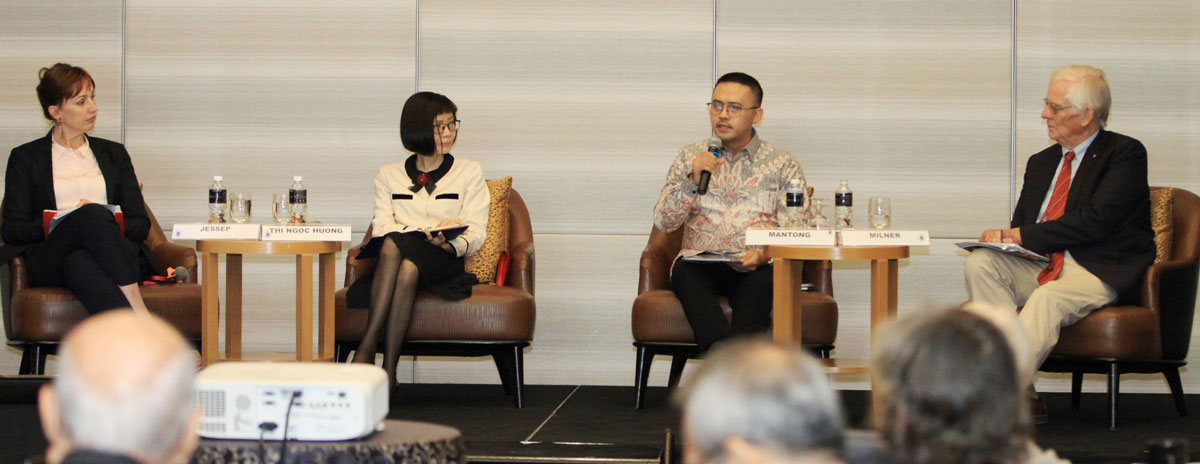
Held at the Pullman Kuala Lumpur City Centre, 4-5 October, and hosted by the Institute for Strategic and International Studies (ISIS) Malaysia.
The Dialogue commenced with a session on 'Reassesing Southeast Asia's outlook on strategic competion', chaired by AEI Visiting Professor Anthony Milner.
Other sessions covered human security & climate action, cyber security, and regional trade. The final session was on 'Strengthening ties throughout the region', and the panel included the Malaysian, Australian and New Zealand Ambassadors to ASEAN - as well as the Director General of the Institute of Foreign Affairs in Laos and the Director of the Institute of Security and International Studies at Chulalongkorn University, Thailand.
One important issue at the Dialogue concerned Australian investment in ASEAN. Although the region as a grouping is Australia's second largest trading partner, the level of the investment relationship is low. This is currently a priority matter for the Australian government - which has appointed a Special Envoy for Southeast Asia, particularly to look into the matter.
The particular advantages of RCEP (Regional Comprehensive Economic Partnership) as a multi-lateral trade agreement were outlined.
The opening Dialogue session included as speakers Andrew Mantong (Centre for Strategic and International Studies, CSIS, Jakarta),
Ton Thi Ngoc Huong (Diplomatic Academy of Vietnam) and Suzannah Jessup (Asia New Zealand Foundation). The conversation covered areas of vital interest to CARUM.
These issues included an analysis of ASEAN's 'Outlook on the Indo-Pacific' - examining exactly what it means and how far it might converge or not with developing thinking in Australia and New Zealand. Contrasting approaches to handling major powers were also discussed, focusing of course on the US and China. There was talk about the relative merits of ASEAN's inclusive regionalism - vis-a-vis the more adversarial regionalism led by major powers, including the QUAD. Australians and New Zealanders were advised about the disadvantages of alliance building and the benefits of greater neutrality in this time of international contest. The benefits as well as the frustrations arising from ASEAN's careful decision-making processes was a further topic.
The Dialogue was told about the endeavours of Australia's current Minister for Foreign Affairs to focus Australia on ASEAN, while also stabilising the country's relations with China.
It was clear at the Dialogue that there is interest in ASEAN foreign-relations approaches - especially in the context of strong US-China tension. It was obvious that there is an urgent need to communicate those approaches with clarity to the international community.
Last Update: 11/07/2024